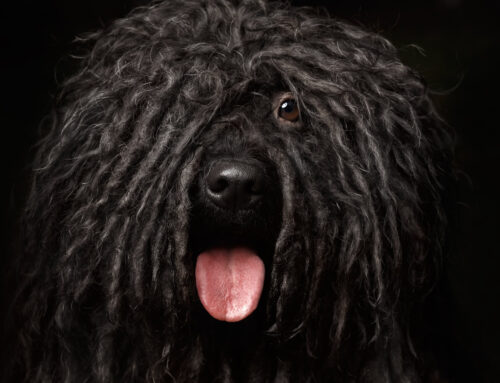What’s important when Choosing a Dog Breeder.
(1) Registration with a Kennel Club.
Only breeders registered with one of the relevant Kennel Club’s in the your country, can provide a certificate of registration, showing the lineage of your dog and proof that it is indeed a dog with a pedigree.
If your breeder can not show proof of registration, don’t listen to any reasons why, assume that its because they can not get or have lost registration
(2) Does Registration with a Kennel Club mean a guarantee of a healthy Dog?
No, it doesn’t. Some breeders breed for maximum profit, and breed as many litters as possible. Others may breed fewer litters, but only be interested in puppies that meet the breed standard, and are not so interested in breeding out genetic problems such as health and aggression problems.
A good breeder will likely breed no more than one litter every two years, so as to ascertain whether their puppies have any major congenital health or temperament problems.
(3) Should I buy from the Breeder of dozens of Champions?
Not necessarily. A breeder with dozens of champions, is likely going for the �lets breed as many puppies as possible and we’ll get lots of champions” model. Fact is, they will have lots of dogs who are NOT champions.
Certainly, but from a breeder who’s dogs are champions, dogs that have been proven to be of superior stock, but ALL the breeders breed stock should be champions, its not how many champion’s they have bred.
(4) What health tests should my breeder have undertaken for my new dog?
Different breeds, are susceptible to different genetic conditions. Please seek out the Kennel Club in your country, and see the current recommended tests for your desired breed. They include but are not limited to:-
- Tests for hip or elbow dysplasia:- Ensure both parents of the litter have OFA ratings of Fair, Good, or Excellent. The Orthopedic Foundation for Animals evaluates x-rays of hips and elbows to determine whether a dog has hip or elbow dysplasia, inherited degenerative bone diseases. OFA provides preliminary evaluations on x-rays of dogs younger than 2 years old, which are about 90% accurate. Kerries are, unfortunately, one of the few breeds in which hip dysplasia is on the rise.
- Eye Disease – Most countires now have an eye registration body, where breeding dogs are tested and registered to show the dam and sire are unaffected by any major heritable eye disease.
- von Willebrand’s disease – I common in some breeders, if so for your breed, make sure both parents have been tested, also for Factor IX deficiency (inherited blood clotting abnormalities) and hypothyroidism (a common endocrine disease).
- Progressive Neuronal Abiotrophy – an incurable inherited disease of the nervous system that affects puppies 2 to 6 months old. There is no genetic test for this disease, but you need to check if any puppies bred by the breeder have suffered from it, and if so what they did to ensure the problem was removed from their breed stock.
- With breeds that have a tendency towards aggression, consider asking for a “Puppy Aptitude Test” (PAT), which measures such things as social attraction, dominant and aggressive tendencies, social dominance/submissiveness, and independence.
(5) What else should I ask my Breeder?
Ask about how easy to train, dog aggression levels in their breed stock, energy levels, intelligence and trainability, and how their dogs are with strangers. You really want to meet the parents, the apple will not fall far from the tree.
(6) What is the breeder likely to ask me.
If the breeder asks you not much at all, this should send off alarm bells. A breeder more interested in a sale, than ensuring one of their babies goes to a good home, is likely breeding for profit, not for love. Their puppies are going to have had less care taken to ensure undesirable traits are bred out, and they will have subjected their breed stock and puppies to less testing to ensure better health and temperament.
A good breeder should ask questions such as:-
- Where do you live? This is especially important with dogs that don’t handle the heat of cold.
- Tell me a little about your home? – Goes to whether you have sufficient space for the breed. Some breeds are fine living the majority of their life in a handbag, others require an extensive yard.
- Do you have children or grandchildren? – Some breeds are not suited to children, or very young children.
- Do you have other pets? – Some breeds such as sight hounds, will instinctively chase and hunt smaller animals. Some breeds are OK with other pets, but need to be well socialized early on.
- Have you had a dog, or dog of this breed before? Many dogs require an experienced owner, and/or experience with this breed. Dogs from different groups and different breeds behave very differently, and the new owner needs to understand this.
- What job do you have? – Some dogs require lots of attention, lots of the time. If you work a 60 hour week, your dog will fret from lack of attention.
- Do you intend to show your dog? – Some breeders will go so far as to insist you show the dog, and contract with them to allow them to breed the dog if it turns out to be a champion. This is either OK with you, or not. Their motivation is to continue strain if its superior, and likely the credit for doing so, your motivation will be you are interested in this, or not. Some breeders, sell their puppies that are wonderful in every way, but lack the necessary qualities as show dogs, on the condition they are spayed.
(6) The breeder I rang/spoke to was… a bit rude.
Find another breeder. Their role us to ensure their dog goes to a good home. Their role is to educate. Their role is not to make you feel like they are doing you a favour just to give you their time, and sell you a dog. Worst case scenario, they are being rude to make you feel inferior, so you won’t ask the big questions.
(7) Get some References. Human and Canine ones, not written
Whether you are buying a dog as pet, or a show animal, if you are serious about your purchase then speak to others who have purchased from your chosen breeder. Paper references are one thing, meeting real owners, and their purchases dogs is quite another.
By meeting such owners and their dogs in the flesh, you will be able to see just how genuine their feelings are about their purchase.


Leave A Comment